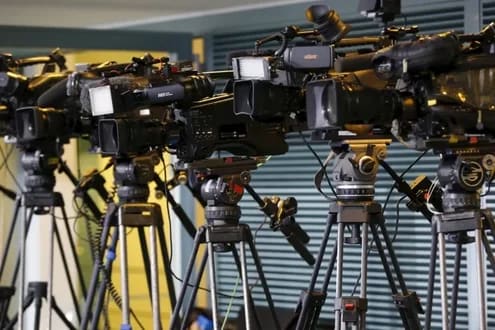I Am an Unemployed Journalist
During my admission interview for journalism school, the professor asked me a simple yet profound question: Why do you want to become a journalist?
I was eager and idealistic—so much so that I interrupted him before he could finish. My answer, which I believed at the time was the ultimate response, burst out of me with unwavering enthusiasm:
• To be the voice of the voiceless.
• To stand with the oppressed against the oppressor.
• To expose corruption wherever it may be.
• To help my nation rise.
• To wake up one day and see our country rebuilt, blooming, and basking in the light of a new dawn.
Today, ten years after that moment, I realize how naïve I was. I was completely oblivious to reality. If I could go back in time, my response to his question would be different: And will you make me a journalist? Why didn’t you tell me that neither university nor media institutions would ever make me a journalist?
What It Means to Be a Journalist in the Arab World
Before defining what journalism truly is, let’s address the elephant in the room. If you are an Arab citizen dreaming of becoming a journalist, you must first rethink the very definition of the profession.
A journalist who writes only what they are ordered to, avoids what is forbidden, investigates only within the limits set by the institution or state, and is shackled by political fluctuations and authoritarian power structures—this is not a journalist. This is merely a mouthpiece for the regime, a writer in service of authority, one way or another. Journalism ceases to be journalism when it is stripped of its freedom.
Once I entered the institutional media world in the Arab region, I found myself haunted by a persistent and exhausting question: Is this truly what I fought for?
If you’ve ever heard of “meritocracy” or “equal opportunities,” know that these are nothing more than hollow slogans. Talent and content no longer matter. Your worth is measured by the numbers you generate on social media. The most sickening reality is watching once-reputable media institutions, with decades of credibility, now chasing internet influencers based solely on their online reach—regardless of the quality or ethics of their content. Even those who trade in scandals, violate privacy, and exploit children for clicks are welcomed with open arms.
The Death of Ethics in Journalism
In this noble profession, all that is noble is abandoned.
Here, there are no ethics, no principles.
Here, you will write what you are told—whether through coercion or bribery.
Here, before you criticize the regime’s propagandists, you will first find yourself flattering your own boss.
Here, before you pledge to never stay silent in the face of injustice, you will witness—and even partake in—oppression, all while staying silent and complicit.
Here, you will chant the praises of the very institution that exploits and suppresses you.
Where does this vicious cycle end?
I no longer understand how our media institutions are run. I no longer comprehend why every time a new director arrives, the first thing they do is purge veteran journalists and replace them with their personal entourage under the pretext of “renewing the bloodline.” Do they truly believe that these media platforms are their personal kingdoms? That once a “king” departs, his court must leave with him?
Journalism: The Profession for Those Without a Profession
This phrase could not be more fitting for the current state of Arab media institutions. Connections and nepotism reign supreme.
If universities required applicants for journalism degrees to have a relative or strong connections in the media industry, I wouldn’t blame them. At least it would save aspiring students from drowning in a sea of false hopes. It would spare them the inevitable heartbreak that awaits them when they finally come face to face with the brutal reality of the Arab media landscape.
After stepping into the institutional media world, I am left with a relentless, exhausting question: Is this really what I fought for?
Today, I say it loudly and clearly:
I am not an institutional journalist.
I am an unemployed journalist.
